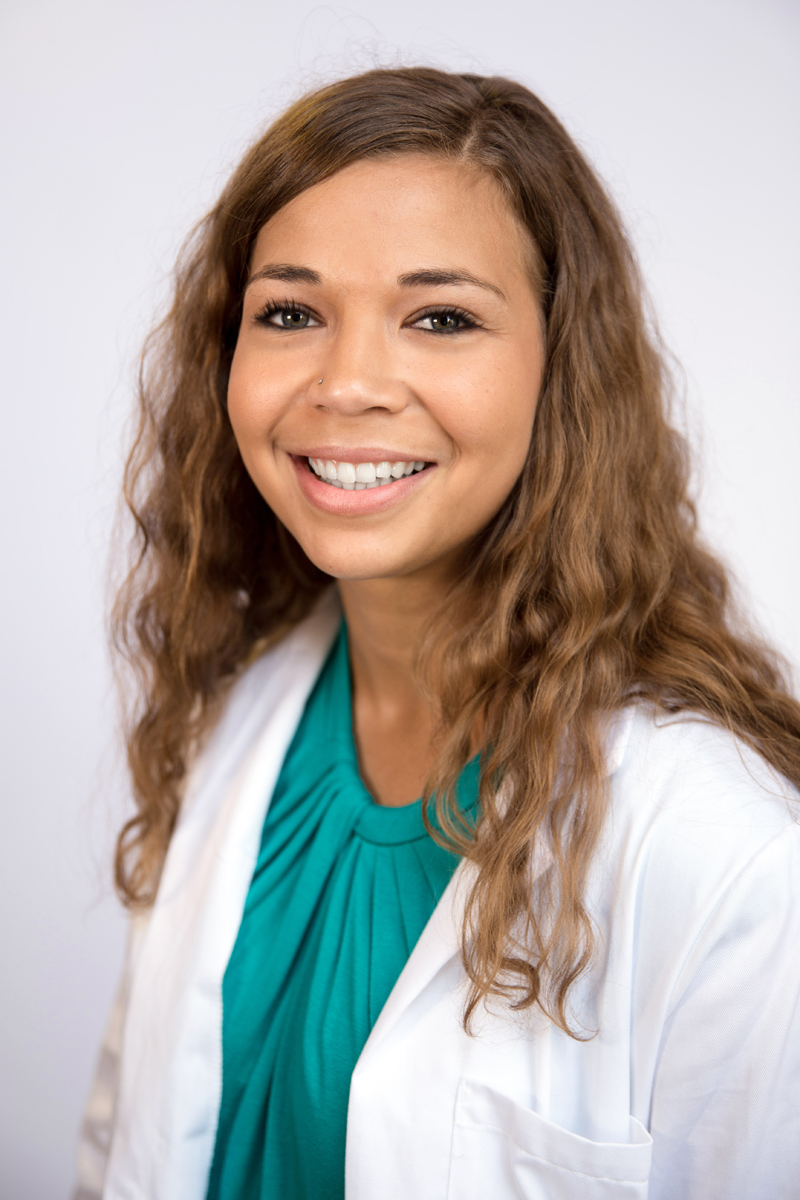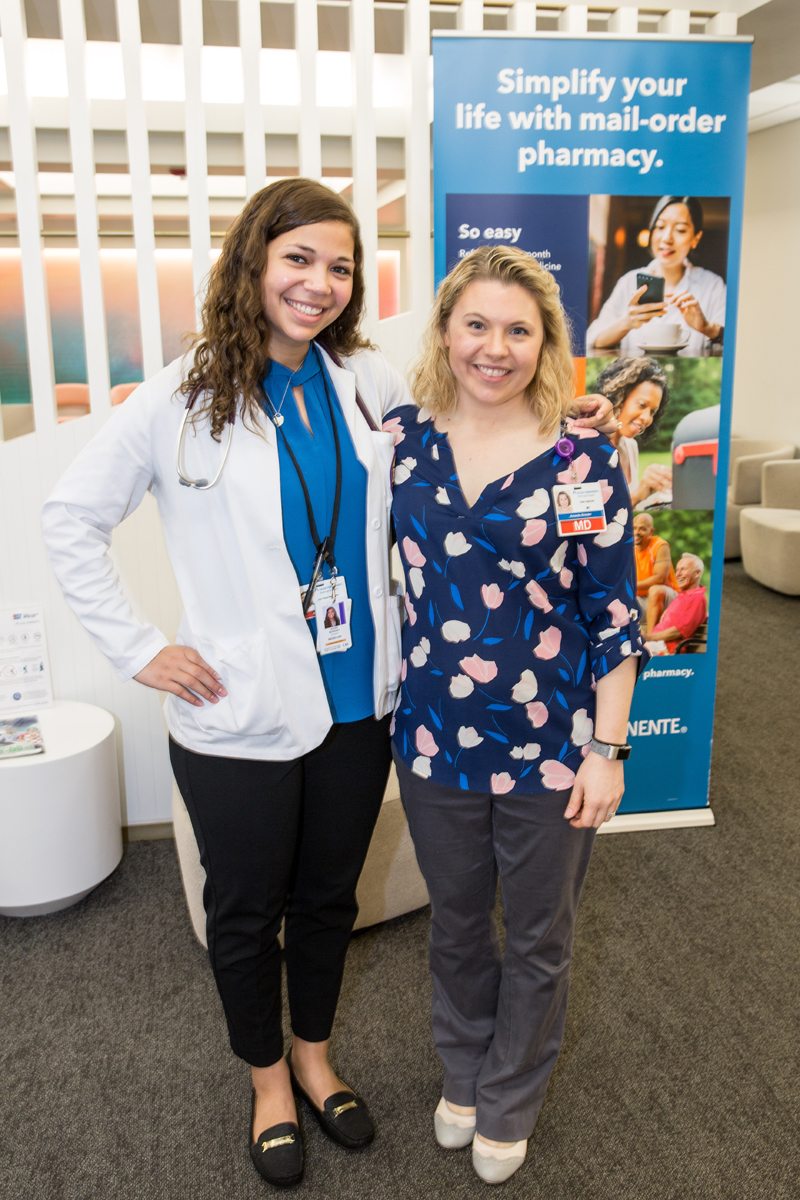“2020 has been kind of crazy,” says Joesie Bowdish of MEDEX Seattle Class 52.
She may as well be speaking for all of us, with the widespread effects of COVID-19 and a U.S. Presidential election year. Nothing is as it was, especially for physician assistant students.
When we first caught up with Joesie it was in January during the tail end of her 4-month family medicine preceptorship at Kaiser Permanente outside Seattle. A month-long surgery rotation at Virginia Mason Clinic followed. But by mid-March, her behavioral medicine rotation was interrupted when the University of Washington decided that all students should be pulled from their clinical environments out of an abundance of caution.
“I was sad,” Joesie says. “As a student, you’re in a groove, right in the middle of your clinical year with a daily routine of learning and studying. Having that interruption was unfortunate.”
While UW Medicine took the time needed to determine the safest course forward for all of their clinical students, the MEDEX leadership evaluated online education tools to keep their second-year students engaged and moving towards graduation. A programmatic decision was made to go with i-Human Patients, an online learning tool that simulated clinical patient encounters. For 12 weeks, Joesie and her cohort were required to shift their focus from actual patients under the guidance of a preceptor to working from home with virtual patient case studies.
Once UW determined the necessary precautions to safely return students to clinical rotations on June 22nd, MEDEX counted those 12 weeks of i-Human towards the students’ education. The remaining rotations were shortened, allowing the 2020 students to graduate in early October instead of the customary August.
“I think MEDEX did a good job, given the circumstances, with keeping clinical year students engaged in learning, while also not delaying graduation too much,” says Joesie. “I definitely feel like it could have been a lot worse. I’m happy with the outcome and soon we can get started with our careers.”
Joesie Bowdish was born in Powell, Wyoming, but lived in the city of Laramie, WY located in the southeast corner of the state. She had connections to Washington State as well.
“My grandparents and aunt Tina live here in Washington, which has been really nice. My grandparents live in the Olympic National Forest area and my aunt lives in Snohomish. Prior to PA school, my immediate family from Wyoming would frequently come to Washington to visit family during the summers.”
Joesie remembers both grandparents having health issues. Her grandfather is a cancer survivor and she recalls accompanying him to appointments when she was little, sitting in the waiting room.
“I made a lot of trips to the doctor’s office with both of them as a child,” she says. “And, despite his fight with cancer, my grandpa is still alive and doing well. It was amazing to me that medicine could change his life in that way.”
As a result, Joesie knew she wanted to do something in medicine. “Medicine interested me, so I explored different fields.” In turn, she worked to become a physical therapy technician, a certified nursing assistant, a pharmacy technician, and an emergency medicine technician. “Just a large variety of experience,” she says. “I was trying to figure out what field of medicine was the best fit for me.”
All that in the space of her 26 years.
Joesie attended the University of Wyoming for her undergraduate work. Initially, she entered the pre-pharmacy program at the University of Wyoming and worked as a volunteer pharmacy technician at the Downtown Clinic in Laramie, which provided pharmaceuticals and healthcare to the underserved population.
“Mainly, I was counting pills and putting them in bottles,” she says. “I am a very social person and love to interact with people. I didn’t enjoy this job as much because I wasn’t getting to interact with patients. So, I decided that, regardless of what I do, I needed to get some hands-on patient experience.”
So, Joesie obtained her Certified Nursing Assistant license, working for a couple of years at care centers in Laramie.
“Working as a CNA was rewarding but very exhausting,” she tells us. “This job is a lot of, what some would consider, grunt work. You’re helping people do anything that they are unable to do themselves—lifting them, feeding them, taking them to the toilet, etc. It was a great experience, but very physical and emotionally exhausting.”
After working at care centers, Joesie decided to venture into home health.
“I enjoyed working in home health because these patients have a little more autonomy. They’re able to do most of their necessary daily activities and may just need help with the shower, taking their medication, or they may just want someone to talk to.”

Eventually, Joesie decided that she might want to go into the field of physical therapy.
She changed her major to Kinesiology and Health Promotion at the University of Wyoming. “I wanted to go into physical therapy because I was fascinated by the human body and how it moves.” Joesie did a summer PT internship in Lander, WY as a physical therapy technician.
“This internship was great because I was able to work hands-on with patients. I was able to talk with them and get to know them as individuals, which is something that I love to do.”
But physical therapy also highlighted aspects of patient care that were different.
“I just felt like there was some aspect of medicine that was missing for me. And I wasn’t quite sure what it was.”
All of this was very stressful for Joesie. Yet she felt that she couldn’t change her career path yet again.
“The field of physical therapy is wonderful, don’t get me wrong,” she reports. “I guess I just felt restricted in some ways. I wanted to be able to prescribe. I wanted to be able to diagnose more than musculoskeletal conditions. I wanted to play a more comprehensive role in a patient’s care.”
Joesie decided that either medical school or PA school would give her the kind of autonomy she hoped to get out of medicine, and to “be able to help people like the doctors and providers that helped my grandpa,” she says.
During this same period of time, Joesie had been working on the side as a home health aide for more experience. After her summer PT internship had concluded, she returned to CNA work for two years, while in school, before landing a job as an ER Tech in the emergency room at Ivinson Memorial Hospital in Laramie, WY.
Joesie chose the physician assistant pathway because it was recommended to her by several providers. The flexibility afforded by the PA profession was a big draw too.
“As a PA, you’re not restricted to one aspect of medicine, you can freely explore all of the fields that are available and find the best fit for you,” she tells us.
Still, there were big hurdles to overcome. PA school was notoriously competitive. Others told her not to expect to get in with her initial application. She was advised to get a job, apply, figure out what she could do better the next time, then reapply the following year.
“I was told that you don’t get accepted your first time applying.”
For Joesie, MEDEX in Washington State was her number one choice. Partially because she had family who lived there, but also because she knew that MEDEX had a good reputation for its education and was a top-ranked PA program. Not willing to bet on one horse, she also applied to schools in California, Oregon, Florida and Arizona.
“I had interviews with all of them but was able to cancel the other interviews once I was accepted into MEDEX since it was my first choice for a PA school and also my earliest interview.” she tells us.
When Joesie received the acceptance call from Associate Professor Keren Wick of MEDEX, she was with a home health patient.
“I ran out into the hall to take the call. It was a really good feeling. I thought it was unlikely that I would be accepted at MEDEX, given how great of a school it is and how competitive their application process was. So, when I heard the news, I was really excited.”
We asked Joesie why she believes MEDEX selected her for Seattle Class 52.
“I had a decent variety of patient experience,” she says. “I had good grades in undergrad and took a lot of challenging classes. I felt like my interview went well. I just tried to talk to the interviewers like I would with any other person.”
Karen Wick, Ph.D., Associate Professor, MEDEX Director of Research and Graduate Programs, recalls that same in-person interview session.
“Joesie was able to talk through that and present her genuine self,” Keren explains. “Some interviewees overcompensate and come across as a ‘character’. Joesie was able to articulate her life experience. The fact that she worked through different health professional options before landing on the PA field meant that she came to us with a pretty good idea of what she was getting herself into, which is very important to have a good fit. MEDEX also gives preference to our service region, which includes Wyoming. And the fact that she could describe healthcare needs of the rural and urban needs in Wyoming spoke to her fit with the MEDEX mission.”
Joesie concurs. “I definitely came from a rural area and was able to see, firsthand, the need for family practice and primary care providers in these areas. I was able to talk about these experiences in my interview. I think that was probably helpful. I also know that MEDEX is big on diversity and I definitely come from a diverse background.”
Joesie’s dad is African American and her mom is white.
“I have a unique background,” she tells us. “I didn’t know who my biological father was until I was 14.” Joesie’s adopted father, Wayne Graves, is also African American. “He and my mom met when I was two. He actually has a son who is eight days younger than me – Derek. So, Derek and I were raised together. It’s actually kind of crazy because Derek and I look identical despite having completely different biological parents. Wayne later adopted me, so that’s my dad.”
Joesie recalls growing up in rural Wyoming with a biracial background.
“I didn’t see a lot of people that looked like me or my dad,” she says. “It never bothered me, and I never had any issues. I just remember when I was really little wondering, ‘Why am I tanner than everyone else?’ You know, you just don’t understand at that age.”
Even to this day, Joesie hears from friends that are doing their clinical rotations in Casper, Wyoming. “And they see less diversity in terms of ethnicity and race, so I was definitely unique.”
We ask about the specific healthcare needs of the people of Wyoming.
“There’s just not enough providers,” Joesie says. “People will often go without healthcare or they will receive lower-quality care because many rural places are desperate to get help. Many times, rural clinics will take whoever that they can, to a certain extent. That could lead to lower-quality care. Even if they were able to recruit good providers—let’s say you have two or three of them for all of these patients—that’s going to lead to lower-quality care because there’s just not enough working hands for the situation.”
Then there are concerns about behavioral medicine.
“It’s a huge issue in Wyoming,” Joesie says. “Many people struggle with addiction. I’m actually writing my Capstone Project on the criminalization of mental illness in relation to rural and underserved areas.”
Her father, Wayne Graves, works in behavioral medicine for the National Guard and Veterans Affairs.
“I’ve just seen the lack of resources for these patients in the state. There’s a need in these communities and eventually, I would like to give back and contribute.”
When we first visited with Joesie in January of 2020 she was finishing up her 4-month preceptorship under Dr. Amanda Brender at Kaiser Permanente in Factoria, WA just outside of Seattle. As reported earlier, much has happened since the start of her clinical year including an episode with COVID-19. She was able to trace this to a trip home to Wyoming.
“My dad had just gotten back from a deployment in Kuwait so, I went to Wyoming in July to see him. Shortly after I got back from Wyoming, I started having minor symptoms,” she tells us. On July 28th Joesie was tested and diagnosed with COVID-19.
In the intervening weeks, her recovery has gone very well.
“I feel very fortunate about my body’s response,” she says. “I had a majority of the symptoms associated with the virus, but my fiancé was basically asymptomatic besides loss of smell. My sense of taste and smell have returned, and I was left with a bit of a cough and some shortness of breath. But I have asthma so that’s pretty typical for me after a viral infection.”

During her recovery, Joesie continued her second-year clinical duties virtually. In August, she worked under Kelsey Wozniak, PA-C at the Rehabilitation Institute of Washington.
“Kelsey is a MEDEX graduate so she gets it,” says Joesie. Essentially, Kelsey allowed Joesie to join all patient sessions via telehealth to allow her to complete the clinical rotation requirements on schedule.
On August 8 Joesie was able to leave isolation. She was doing so well with telehealth that Kelsey decided to finish out the rehabilitation rotation in the same way. Next is an underserved rotation at Harborview with Dr. Ying Zhang, and then a behavioral medicine makeup rotation in Pasco, WA.
“I think that will be a virtual experience as well,” Joesie says.
Perhaps the most influential experience was the general surgery rotation under Neil Wiegand, PA-C at Virginia Mason Clinic back in February.
“It was a great experience,” she says. “We’re actually still in contact and good friends now. I learned a lot from Neil and the surgeons at VM. And the experience pushed me in the direction that I want to go into after school. Not general surgery, mind you. What I enjoyed the most was the inpatient rounding we did on surgical patients post-operatively. So, right now I’m applying for fellowships in hospital medicine.”
Such fellowships allow individuals entering the medical workforce to gain more experience. For Joesie, this is important especially after the two-month break and the resulting shortened rotations.
“I have applied to some really great fellowships, with my number one choice being in Colorado, given the close ties that I have to that area. However, I was selective in the fellowships that I applied to and I know each one of them would help me to achieve my goals. I do understand that the PA profession is one where you do a lot of learning on the job, but when wanting to go into a specialty field, I think furthering my education would allow me to be the best provider possible for my future patients.”
Looking back on the totality of her time at MEDEX, there have been challenges for sure. But Joesie is especially appreciative of the foundation provided during the didactic year in the classroom.
“D.J. hammered things into our brains, including many professional and life lessons that he shared with us.”
Joesie is referring to D.J. Smith, MCHS, PA-C, MEDEX faculty, and Assistant Director of Academic Affairs.
“He changed the way that I would like to practice in the future, and I know he has had a similar impact on other students in my cohort. A lot of his lectures have stayed with me and I know they will stick with me in the years to come. I want to say thank you to DJ specifically because he takes so much time to make sure that students are learning and getting the most out of the didactic portion of the curriculum. But I also want to say thank you to the rest of the didactic and clinical year faculty. I want them all to know how much I appreciate their efforts and everything they’ve done for us.”

